Australian soldiers are good at building relationships. Australian Sappers from the Royal Australian Engineers (RAE) excel at this. Government has signalled renewed interest in enhanced regional engagement in the South West Pacific. For RAE Construction Engineers (think tradies and planties), deep and enduring ties are forged where we partner, both at home and abroad, to deliver useful and often vital infrastructure.
This article pitches the case for increased utilisation of Army’s part-time (Reserve) Sappers in these regional endeavours. While SERCAT7 RAE regiments will continue to furnish the backbone of the ADF’s engineer engagement in our region, the Total Workforce Model opens opportunities to supplement Army’s full-time RAE workforce with highly skilled part-time Sappers, including for regional deployments.
Army already has a significant part-time Sapper workforce to contribute to enhanced regional engagement, as follows:
- NSW – 5th Engineer Regiment
- QLD – 11th Engineer Regiment
- VIC – 22nd Engineer Regiment
- SA – 3rd Field Squadron, 10th/27th Royal South Australian Regiment
- WA – 13th Field Squadron, 16th Royal Western Australian Regiment
The SERCAT7 RAE units also have a number of part-time positions. Collectively, this part-time Sapper workforce is ideally placed to contribute to enhanced regional engagement, for three reasons. Firstly, the demonstrated success of part-time Sappers over many years on the Army Aboriginal Community Assistance Program (AACAP); secondly, the unique strengths part-time Sappers offer in construction and people skills; and finally, the Future Ready status of the part-time force.
Building on AACAP Success
AACAP is one of Army’s main lines-of-effort in the Army Indigenous Strategy, being the ‘periodic and intensive’ construction effort supplementing the Regional Force Surveillance Group’s (RFSG) persistent engagement effort. Part-time Sappers have a proud history of significant contribution to AACAP, alongside full-time colleagues. Part-time Sappers have helped build:
- highly-valued housing in Kalumburu, WA (2008); Yarralin, NT (2001) and Palm Island, QLD (2003)
- local formed roads in Pukatja, SA (2010)
- airfield enhancement in Amanbidji (2001), NT, & plumbing on the Dampier Peninsula (2002)
- a community hall along with provision of mentoring in construction skills to the local communities near Toomelah, NSW (2017)
- single story housing, upgrade to the local caravan park and construction of a sealed road to the local airfield in Yatala, SA (2018)
But AACAP is about more than infrastructure. The real value in these projects are the relationships we have forged with Indigenous communities along the way. Through mentoring and coaching, part-time Sappers build more than leave-behind infrastructure: they contribute to Indigenous Engagement and Development through trade skills transfer, empowering communities to build brighter futures for themselves. And there is more. AACAP speaks to the heart of one of Army’s values: Respect. Sappers return from AACAP culturally enriched, benefiting from deep immersion in Indigenous communities who are generous in sharing knowledge, custom and tradition. These experiences build mutual respect and renewed appreciation of Indigenous communities.
At the June 2019 RAE Corps Conference, Brigadier John Shanahan, reflecting on his experience in Afghanistan, commented that the relationship-winning edge of Australian Sappers was their ‘patience, skills and temperamental inclination’ towards mentoring and coaching. These are unique ADF Engineer effects, which we would find challenging to capture in the contractual terms for a private-sector, out-sourced infrastructure solution. In this operating environment, small capability bricks of skilled Sappers are able to achieve big results in local relationship-building: the classic engagement ‘multiplier effect’ that the ADF relentlessly seeks.
Playing to Strengths
Part-time Sappers offer particular strengths when it comes to promoting mutually beneficial relationships. The part-time RAE workforce is amongst the most culturally diverse in the Australian Army. Recruitment catchment areas are centred in the fastest-growing demographic communities in the country (Western Sydney, Melbourne, Adelaide, Perth and South-East Queensland). Part-time Sappers are from and of and for the people – our local communities. Given the background of our Sappers, Cultural Competency is not just a taught skill: it comes as first-nature. Part-time Sappers are often older than their full-time counterparts – and many Indigenous peoples associate seniority with age, rather than the ADF’s rank structure. As a result, older Sappers are often more effective in an Indigenous negotiation, mentoring & coaching context. A case of ‘fit-for-purpose’ capability.
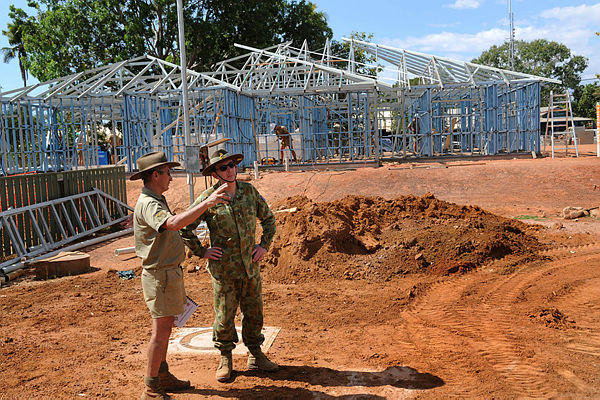
Sapper skills were on ample display during the October 2018 Invictus Games in Sydney, where 49 Sappers from the 5th Engineer Regiment deployed under OP INVINCIBLE to support the safe, secure and successful conduct of the Games[i]. During this Operation the Sappers showed themselves to be compassionate, empathetic and nuanced in relating to sensitive human issues in real time and in the public eye. Their service brought out the best in competitors, supporters and spectators alike. Our Sappers stretched definitions of teamwork – common commitment to a shared purpose – to a new scale, bridging the uniformed-non-uniformed divide. Part-time Sappers offer the complete capability package: practical and versatile construction skills plus the sophisticated relationship-building skills to make a real difference in complex physical and human terrain.
Domestic DACC (Defence Aid to the Civil Community) and HADR (Humanitarian Aid and Disaster Relief) are further examples where part-time Sapper skills shine. Responding to natural disasters here at home (e.g. Queensland Floods, VIC Bushfires Assist, the 2013 Blue Mountains Bushfire, and the 1989 Newcastle Earthquake), part-time Sappers help to mend broken hearts as they mend broken fences, clear debris, and undertake skilled search tasks for precious people and possessions. Sappers are the ultimate, all-weather ‘friend in need’, bringing that combination of practical physical and human skill to the point-of-need – and regardless of the weather, season or terrain. Sappers enable access – to locations and to people – under all conditions.
Part-Time Sappers are Future Ready
The Australian Army has always been a people-focused organisation and our current Public Affairs banners emphasise that ‘People are at the centre of all our endeavours’. Three recent capstone pieces of guidance strongly reinforce this people dimension to Army’s business: Accelerated Warfare, the Future Operating Environment, and Good Soldiering.
Chief of Army’s new capstone concept, Accelerated Warfare | Army in Motion, lists four P’s:
- Preparedness
- People
- Professionalism
- Potential
Army’s part-time Sapper workforce ticks each of these boxes. Sappers:
(1) are Prepared. Currently, for every deployment position the part-time force is offered, we are strongly subscribed with deployment-ready Sappers submitting operational nominations.
(2) present with great People skills (as evidenced by Invictus Games).
(3) offer Professionalism founded on their civilian skills augmented by their military training.
(4) have untapped Potential that can be more fully exploited by Army in support of Australia’s national interests.
Accelerated Warfare is Army’s response to the Future Operating Environment (FoE). The FoE stresses that clear distinctions between peacetime and declared warfare are rapidly evaporating, replaced instead by a foggy continuum spanning Cooperation – Competition – Conflict. In the FoE, there is a premium on those force elements able to operate seamlessly across these foggy boundaries. This is where part-time Sappers come into their own, being especially well-suited to delivering ‘cooperation’ effects – while nonetheless providing a uniformed presence and signalling – and a soldier’s wary eye.
Good Soldiering explicitly introduces a new concept for Army’s capability edge: the ability to team…and rapidly re-team with diverse stakeholders, as required by Government. Being able to rapidly establish trusted rapport, especially with non-uniformed, cross-cultural entities is a critical teaming skill – and one that the majority of our part-time Sappers exercise every day, in their civilian professions and private endeavours.
Army’s part time Sappers are already compatible with the above three capstone pieces, as they bring Cultural Competency (and often culturally diverse backgrounds) plus great non-uniform liaison skills to any engagement opportunity at home and abroad.
Towards the South West Pacific
Not only are these Engineer effects readily exportable they are now in growing demand. Our Government is looking towards the South West Pacific, and seeking positive opportunities to enhance our regional engagement. Our part-time Sappers are pre-packaged and Good-to-Go for these opportunities. We have form. Our people have regularly deployed to Papua New Guinea on EXERCISE PUK PUK, and many are veterans of Timor Leste, Solomon Islands and the Middle East. There is clear scope for an expanded role for part-time Sappers in future positive engagement activities in our region to provide construction, maintenance and mentoring skills. While a range of stakeholders can construct infrastructure and then leave, part-time Sappers can follow-up with repeated maintenance visits. This ensures the ongoing utility of physical assets important to local communities and provides a recurring opportunity to build local capability and relationships based on mutual understanding and respect.
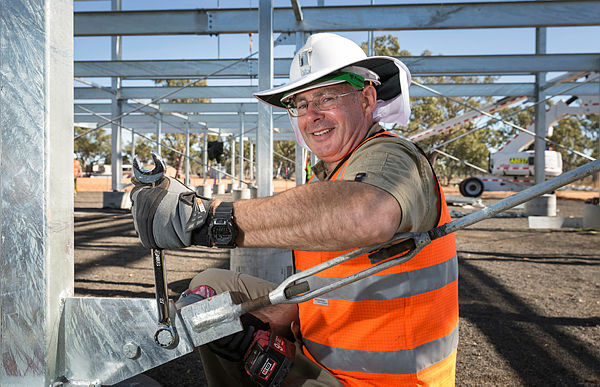
Tradie Ambassadors
Australian Sappers are dual-hatted, in the sense that they are both ADF (and Australian) Ambassadors and offer valuable construction skills - at the grass-roots community level. When Sappers build a house they create a home for a family. But when Sappers give the gift of basic trade skills, they empower a community to build their future on more sturdy foundations. Not only do Sappers extend the hand of genuine friendship, especially to those in need, they are prepared to work with a partner to exchange skills, build human capability along the way and learn themselves.
Part-time Sappers offer significant potential as a future-ready human asset, well-suited to both the physical and human challenges of the Future Operating Environment. As Government considers our options in the South West Pacific Army’s pat-time Sappers stand ready to serve. A new SERCAT5 Construction CONEMP (Concept of Employment) would be the ideal vehicle in which to scope these potential contributions, as part of a Total Workforce solution.
Calling All Tradies
Part-time Sappers consistently state that their key motivations for part time ADF service are the chance to:
- do interesting trade work, in a mixed-trade team;
- in exotic locations;
- while deployed with mates;
- conducted in block-periods of time, that can slot in well with civilian careers and family commitments.
Army’s part-time Sappers offer more than just individual round-outs. The part-time Engineer Regiments stand ready to deploy formed bodies of tradies on both exercises and deployments.
_______________________________________
Have a trade? Interested in serving part-time in uniform? Potentially available for Fly-In-Fly-Out (FIFO)?
Be Valued and Build Value – join Army’s part time Engineers.
Check out the current part time Engineer jobs listed on https://reserves.defencejobs.gov.au:






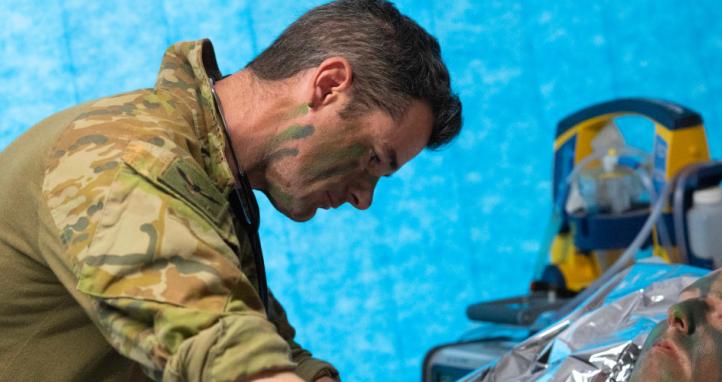

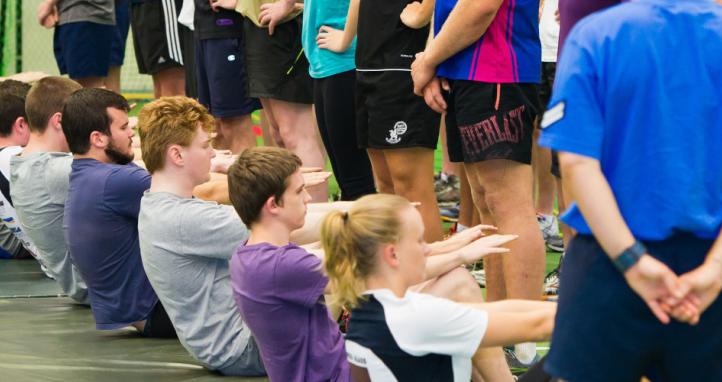
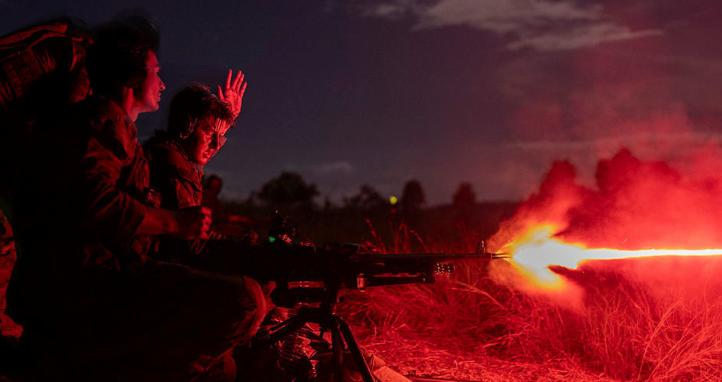
SERCAT 5 construction (conemp) will be a great way of recording part-time ADF mbrs who's civilian skills range from technical (trade assistances) to professional (registered Engineers). From my experience most part timers with civilian construction skills given the opportunity to be attached to a construction Sqn on remote or international projects would grab the opportunity. At the moment these skills remain for the most part untapped.